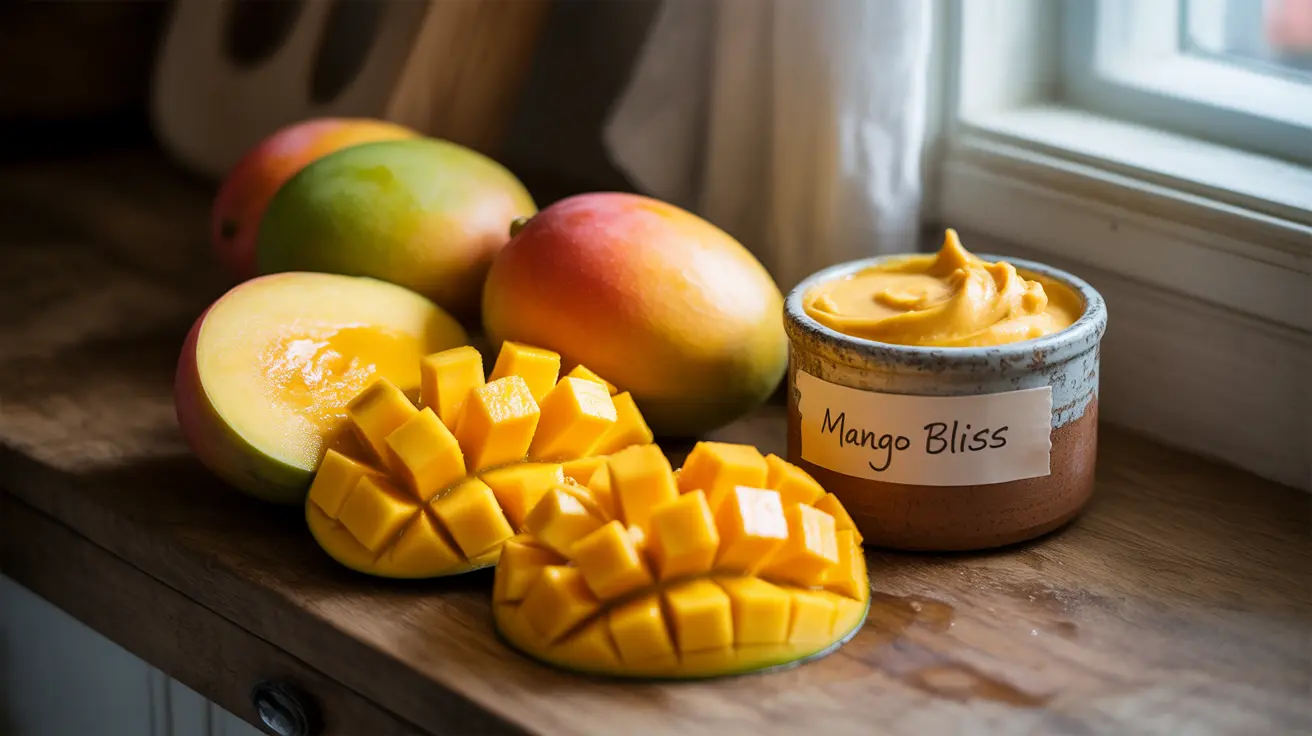The tropical mango isn't just a delicious fruit – it's also a powerful ally for achieving healthy, radiant skin. Packed with essential vitamins, antioxidants, and nutrients, mangoes offer remarkable benefits for skin health whether consumed as part of your diet or applied topically. Let's explore how this vibrant fruit can transform your skincare routine.
Nutritional Profile Supporting Skin Health
Mangoes are rich in vital nutrients that promote skin health. They contain high levels of vitamin C, which aids collagen production and helps maintain skin elasticity. The fruit also provides vitamin A and beta-carotene, powerful antioxidants that protect skin cells from damage and promote natural regeneration.
Additionally, mangoes contain vitamins E and K, along with numerous polyphenols that help combat free radicals and support overall skin health. These compounds work together to nourish your skin from the inside out.
Anti-Aging Properties
The antioxidant content in mangoes makes them particularly effective for combating signs of aging. Vitamin C stimulates collagen synthesis, helping to reduce the appearance of fine lines and wrinkles. Meanwhile, vitamin A promotes cell turnover, revealing fresher, younger-looking skin beneath.
Protection Against Sun Damage
Beta-carotene and other antioxidants in mangoes help protect skin cells from UV damage. While not a replacement for sunscreen, regular consumption of mangoes can provide additional defense against photoaging and sun-related skin concerns.
Topical Applications of Mango
Mango Butter Benefits
Extracted from mango seeds, mango butter is an excellent natural moisturizer. It's rich in fatty acids and vitamins that help:
- Lock in moisture
- Soothe dry, irritated skin
- Improve skin texture
- Promote skin elasticity
- Provide natural UV protection
DIY Mango Treatments
Fresh mango pulp can be incorporated into homemade face masks and treatments. When combined with other natural ingredients, it can help exfoliate, brighten, and nourish the skin. However, always patch test before applying any new skincare product to your face.
Acne and Skin Conditions
Mangoes contain salicylic acid, a natural compound known for its ability to help clear pores and reduce inflammation. The vitamin A content may also help regulate oil production, potentially benefiting those with acne-prone skin. However, individual responses can vary, and some people may need to moderate their mango consumption.
Safety Considerations
While mangoes offer numerous skin benefits, it's important to be aware of potential risks:
- Some people may be allergic to mangoes, particularly their skin
- Those with sensitive skin should start with small amounts when using topical applications
- People with latex allergies may experience cross-reactions
- Excessive consumption might lead to temporary skin flushing in some individuals
Frequently Asked Questions
What are the main benefits of eating mango for healthy skin? Eating mango provides essential vitamins A and C, antioxidants, and other nutrients that support collagen production, protect against sun damage, and promote cell regeneration for healthier skin.
How does mango help reduce signs of aging and sun damage on the skin? Mango's antioxidants and vitamins fight free radicals, while vitamin C boosts collagen production. Beta-carotene helps protect against UV damage, collectively reducing signs of aging and sun damage.
Can mango or mango butter be used topically to improve dry or aging skin? Yes, mango butter is an excellent moisturizer that can improve skin texture and elasticity. It's particularly effective for dry or mature skin due to its rich fatty acid content and natural vitamins.
Is mango beneficial for acne-prone skin, or can it cause breakouts? Mango contains natural salicylic acid and vitamin A, which can help manage acne. However, individual responses vary, and some people might experience increased breakouts, so it's important to monitor your skin's reaction.
Are there any risks or allergies to be aware of when using mango products on the skin? Some people may be allergic to mango skin or pulp. Those with latex allergies should be cautious, and it's essential to perform a patch test before using mango-based skincare products.




